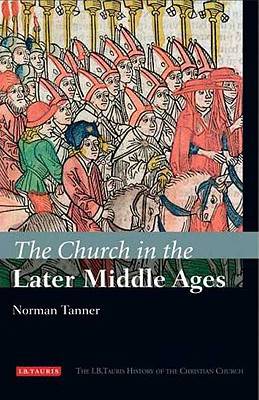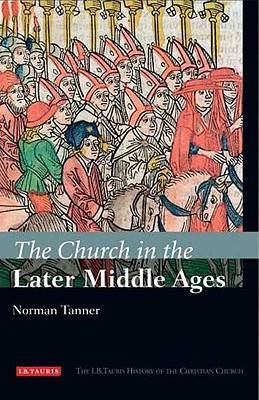
- Retrait gratuit dans votre magasin Club
- 7.000.000 titres dans notre catalogue
- Payer en toute sécurité
- Toujours un magasin près de chez vous
- Retrait gratuit dans votre magasin Club
- 7.000.0000 titres dans notre catalogue
- Payer en toute sécurité
- Toujours un magasin près de chez vous
115,45 €
+ 230 points
Description
The Later Middle Ages (1300-1500 CE) have often been characterised as a period of decline for Christendom. The era seems to sit uncomfortably between the remarkable achievements of church and society in the twelfth and thirteenth centuries, and the revivals of the Reformation and Counter-Reformation in the sixteenth century. The period has even been called a 'Babylonian Captivity' for the Church, echoing the struggles of the Israelites in exile, and reflecting the transferral of the papacy to Avignon in 1309.Norman Tanner challenges this negative view, examining a vibrant period of ecclesiastical history in its own right rather than just through the lenses of the centuries that preceded and succeeded it. He discusses the trials of the age in the form of the papal schism between 1378-1417, the heresies of Cathars, Lollards and Hussites, the Hundred Years' War, and the terror of the Black Death. Yet he focuses, too, on the great ecumenical councils, the flowering of intellectual life in the Renaissance and the extraordinarily rich spirituality of mystics like Julian of Norwich, Catherine of Siena and Meister Eckhart.
What comes to light in this lively and readable volume is that the later medieval age was actually one of extraordinary achievement for the Church: of deepening and enrichment, as well as of schism and conflict.
What comes to light in this lively and readable volume is that the later medieval age was actually one of extraordinary achievement for the Church: of deepening and enrichment, as well as of schism and conflict.
Spécifications
Parties prenantes
- Auteur(s) :
- Editeur:
Contenu
- Nombre de pages :
- 224
- Langue:
- Anglais
- Collection :
Caractéristiques
- EAN:
- 9781845114381
- Date de parution :
- 01-08-08
- Format:
- Livre relié
- Format numérique:
- Ongenaaid / garenloos gebonden
- Dimensions :
- 152 mm x 234 mm
- Poids :
- 521 g

Les avis
Nous publions uniquement les avis qui respectent les conditions requises. Consultez nos conditions pour les avis.






